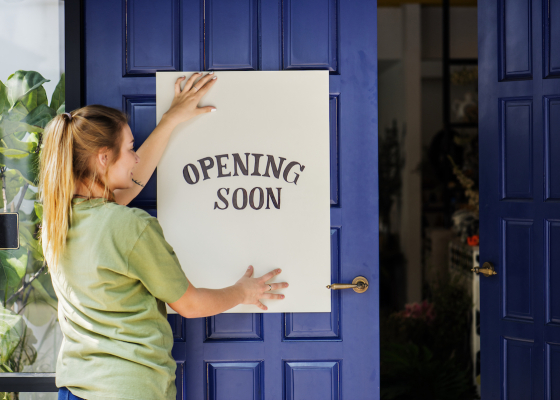Opening a retail store is an exciting venture, but choosing the right location can make or break your business. Your store's success is closely tied to where it's located, so it's crucial to research various location factors before making a decision.
In today's blog post, we'll explore the most important factors to keep in mind when scouting for your retail store location, and how Commercial Insurance policies from Aegis Insurance & Financial Services can protect your new retail business.
1. Regional Demographics
Knowing your target audience is an integral part of any successful retail store, and this info will guide your decision on where to locate your store. Regional demographics, such as age, income levels, education, and buying habits of the population, play a pivotal role in determining whether your business will thrive.
• Is your target market primarily families, young professionals, or retirees?
• What is their average household income, and can they afford your products?
• What is the population density, and will it sustain enough foot traffic?
For example, a high-end boutique may not do well in a low-income area, while a family-oriented store may not find its audience in a neighborhood primarily populated by young professionals.
2. Zoning Laws and Restrictions
Zoning laws dictate what types of businesses can operate in certain areas. Before you fall in love with a location or sign a lease agreement, check with the local municipality to make sure the property is zoned for retail use.
Zoning laws vary by city and state, so it's important to stay informed to avoid potential fines or legal issues. Additionally, there may be restrictions on signage, hours of operation, and even parking, which could impact your business.
3. Tax Rates
Different areas can have varying tax rates that affect your overall expenses. Property taxes, sales tax, and even local business taxes need to be considered when choosing a location. A retail store in an area with high tax rates can eat into your profits, while an area with lower tax burdens can boost your bottom line.
Take the time to research local tax laws and consult with a financial advisor to understand the implications of these rates on your long-term business success.
4. Traffic Conditions
Foot traffic is the lifeblood of most retail stores, so having a location that is easily accessible and sees regular pedestrian and vehicle traffic is ideal. Pay attention to nearby public transportation hubs, major highways, and parking availability to ensure customers can easily reach your shop.
Consider these traffic questions:
• Is the street busy enough to attract walk-in customers?
• Are there accessible parking lots or garages nearby for customers?
• Will customers be able to easily access our store?
The flow of traffic on the streets surrounding your location can also determine how visible and accessible your store will be. You should consider current construction projects, rush hour conditions, and any large signage or trees that could make it harder for customer to spot your business.
5. Future Development
Investigating future development plans in the area is also essential since these can positively or negatively impact your business. Local government websites often publish planned infrastructure projects, new housing developments, and commercial expansion efforts.
For example, a new residential neighborhood could bring in more customers, but a massive construction project might drive them away temporarily. It's important to weigh these potential changes and how they could affect your business in the short and long term.
6. Crime Statistics
Safety is a significant concern for both business owners and customers. High crime rates can impact foot traffic and possibly raise your operating costs through higher insurance premiums or the need for security systems.
Research crime statistics for the area, focusing on burglary, vandalism, and other property-related crimes that could impact your store. In areas with higher crime rates, you may need to budget for extra security measures or negotiate a lower lease rate to compensate for the added risk.
The Importance of Commercial Property Insurance
Once you've found the perfect location for your retail store, it's vital to protect your investment with comprehensive Commercial Property Insurance. No matter how careful you are, unexpected events like theft, fire, or natural disasters can cause significant damage to your business. Having the right insurance coverage ensures that you can recover quickly from these setbacks.
At Aegis Insurance & Financial Services, we understand the unique risks associated with running a retail business. We offer customizable insurance plans that protect your property, inventory, and equipment from loss.
Our policies cover:
• Fire and Theft: Protection against fire damage, theft, and vandalism.
• Natural Disasters: Coverage for losses resulting from floods, hurricanes, and other natural disasters.
• Liability Coverage: If a customer gets injured on your premises, our liability coverage helps protect you from costly legal fees.
Our team of experts will work with you to assess your needs and create a policy tailored to your specific business requirements.
Protect Your Retail Business Today!
At Aegis, we're dedicated to helping small business owners like you focus on growing your business, without worrying about unexpected financial setbacks. If you're considering opening a new retail store or expanding into new locations, give us a call at 713-850-7622 to discuss your Retail Insurance needs and how we can protect your new venture!

